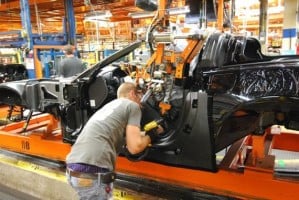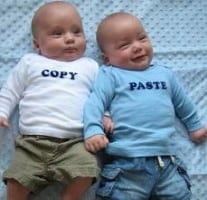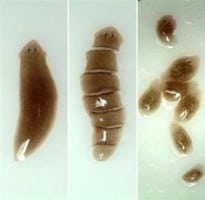
To purchase the entire DVD set of the Summit Lecture Series, visit summit.org.
People too often confuse “construction” with “development”.
In Bowling Green, KY, you can visit the Corvette Assembly Plant and if you hang around long enough, you can actually watch a Corvette, from the time the first two metal plates are put together to the point it rolls of the assembly line at the end of the plant.
Would we think, as we watch the construction process of the ‘Vette, that we had a Corvette at the point when the first two metal plates were put together? No. Those first two metal plates could be used for practically anything – a picnic table, a boat, a trailer… who knows?
How about when the frame is totally welded together? Do we have a Corvette then? Still no. What about when the suspension and power train are added? We are getting closer, but it is still not a Corvette.
How about when the body is attached to the frame? When the interior is added? Some people say “No” until the wheels touch the ground. Yet, no one would think that we have an actual Corvette back when merely the first two plates were put together – and rightfully so.
But the same does not apply to people.
When you were an embryo, you did something that no constructed thing (like a Corvette) ever did. You weren’t constructed piece-by-piece on an assembly line. Rather, you developed from within. God built into the human race the ability for each of us to direct our own internal development from the very beginning.
No Corvette has ever pulled that stunt off.
That’s why when journalists like Michael Kinsley say that an embryo is just a clump of cells, they totally miss the point.
The embryo is not merely a clump of cells. It’s much more than a clump of parts similar to a pile of parts to a Corvette before they are assembled. Rather, the embryo is already actively developing itself from within.
That’s the difference between the Corvette and you; and our secular critics don’t get it.
Additionally, they will often say things like, “How can you say that the embryo is a distinct, whole-living member of the human family when twinning can occur?”
At about the 14th day of the human embryo development stage, an embryo may split into two. Then, what you have is not just one embryo, but two living human beings.
That’s the ground many pro-choice people stand on when they say the entire case for an human embryo being a whole member of the human family is debunked.
But, how does it follow that because that embryo may split that it wasn’t a whole human being prior to the split? Is it possible for something to be a whole living entity and split, but still have been a living entity prior to the split?
Consider the flatworm. If you cut one in half, you end up with not two halves of a single flatworm, but two distinct flatworms. Does it follow that there was no wholly living flatworm prior to the split? Certainly not.
So that fact that a human entity may split does not mean that it wasn’t fully human prior to the split.
Another thing critics say is: Women don’t grieve miscarriages the way that they grieve the death of an older child. While this could be debated – there are women who do, in fact, grieve their miscarriage just as much as a mother who may have lost her toddler – but, I suggest that we don’t debate this issue. How or if mothers grieve is not the issue here at all. How would it follow that if I grieve the death of one human more than another, that the one that I don’t grieve is less human than the one that I do grieve?
If I were to learn right now that one of my four children were to die in a tragic accident, I would grieve for him much more than I would for the thousands of other children who die each day in third-world countries from malnutrition. But this doesn’t make those people any less human than my children at all. A parent’s level of grief does not factor in at all to the humanity of a child, it merely reflects the amount of attachment they have to one child over another.
Still other critics of pro-life sometimes say: “Wait a minute… women naturally abort the majority of pregnancies.”
The argument goes something like this: Most women, when they get pregnant, will lose the entity that they are carrying. That embryo, as the argument goes, will spontaneously abort. Which means either God is the biggest abortionist on the planet or nature is. Either way, how can pro-life Christians claim that abortion is wrong when nature itself is in the business of aborting tons of human embryos?
But that’s not a sound argument.
How does it follow that because nature spontaneously causes an abortion that: A) The embryos that are dislodged are not fully human; or B) That mankind may deliberately kill them?